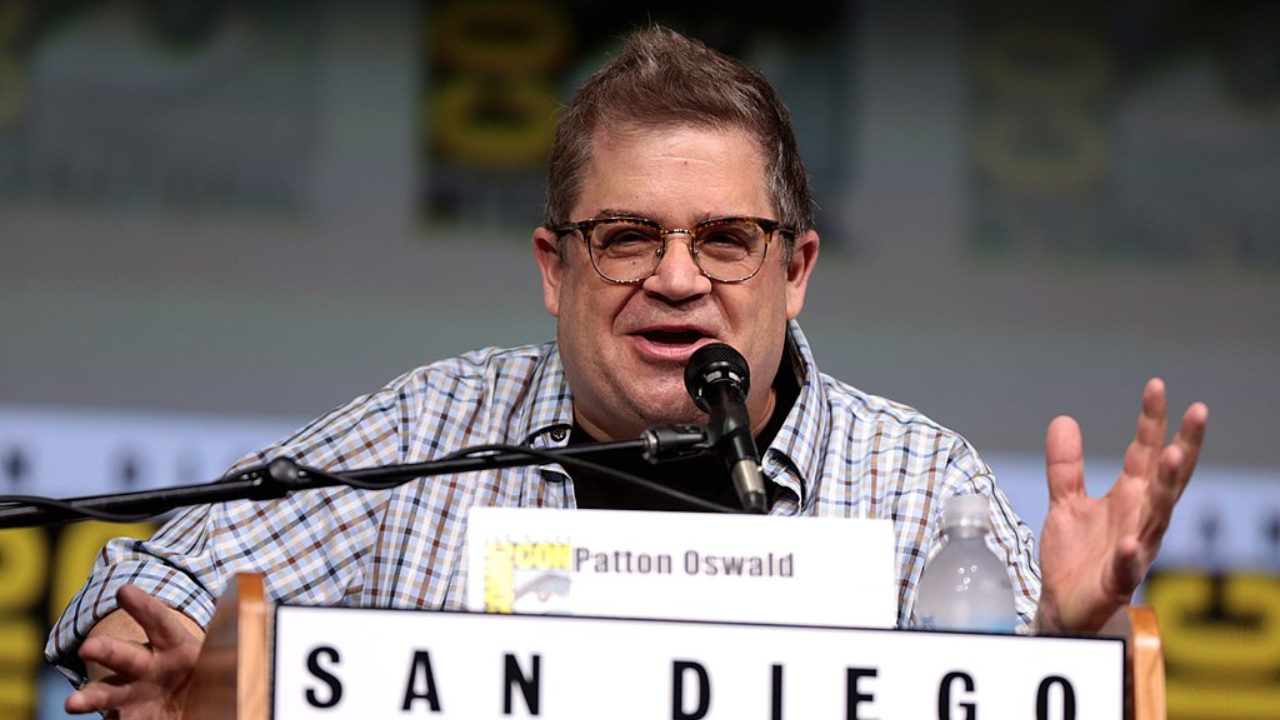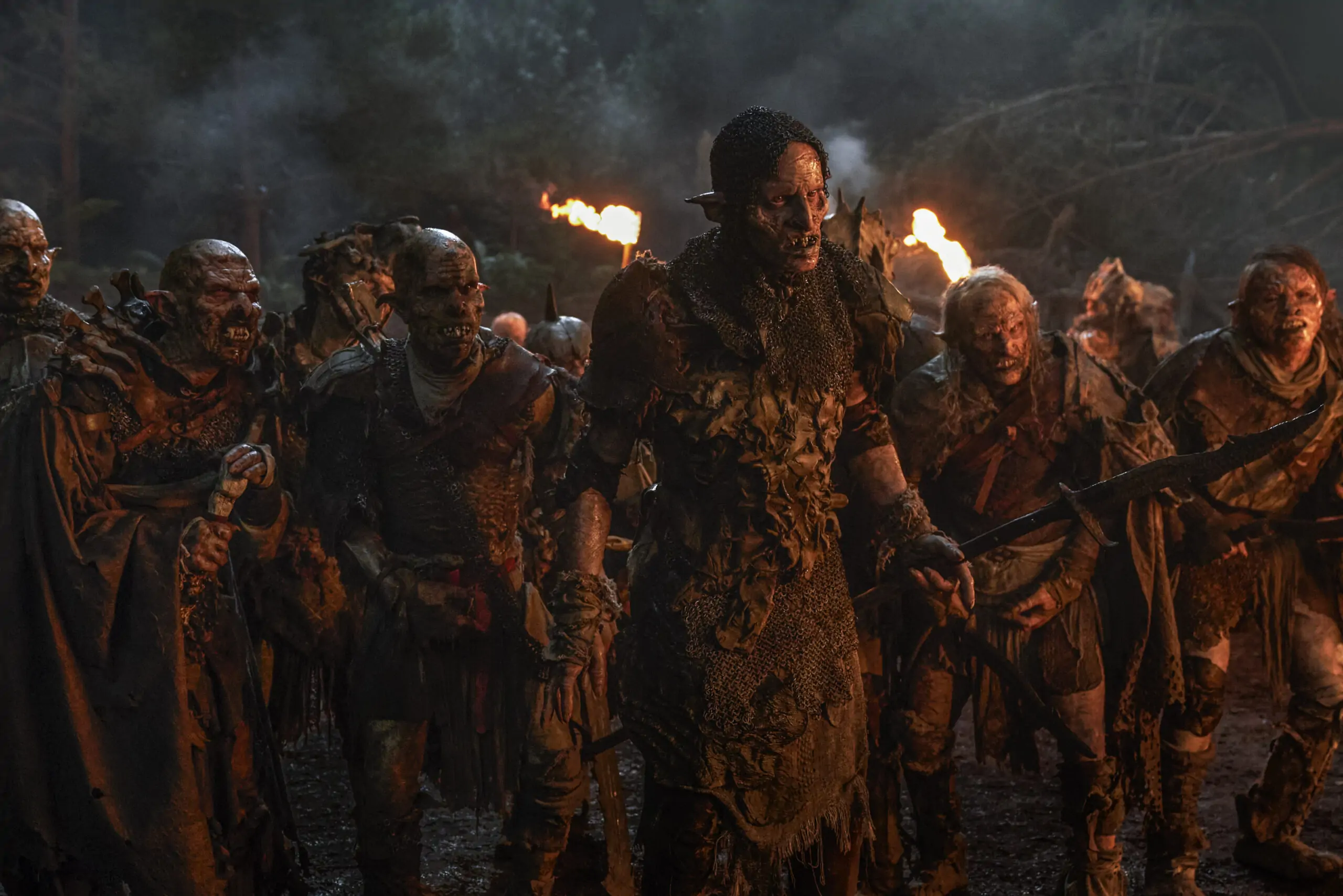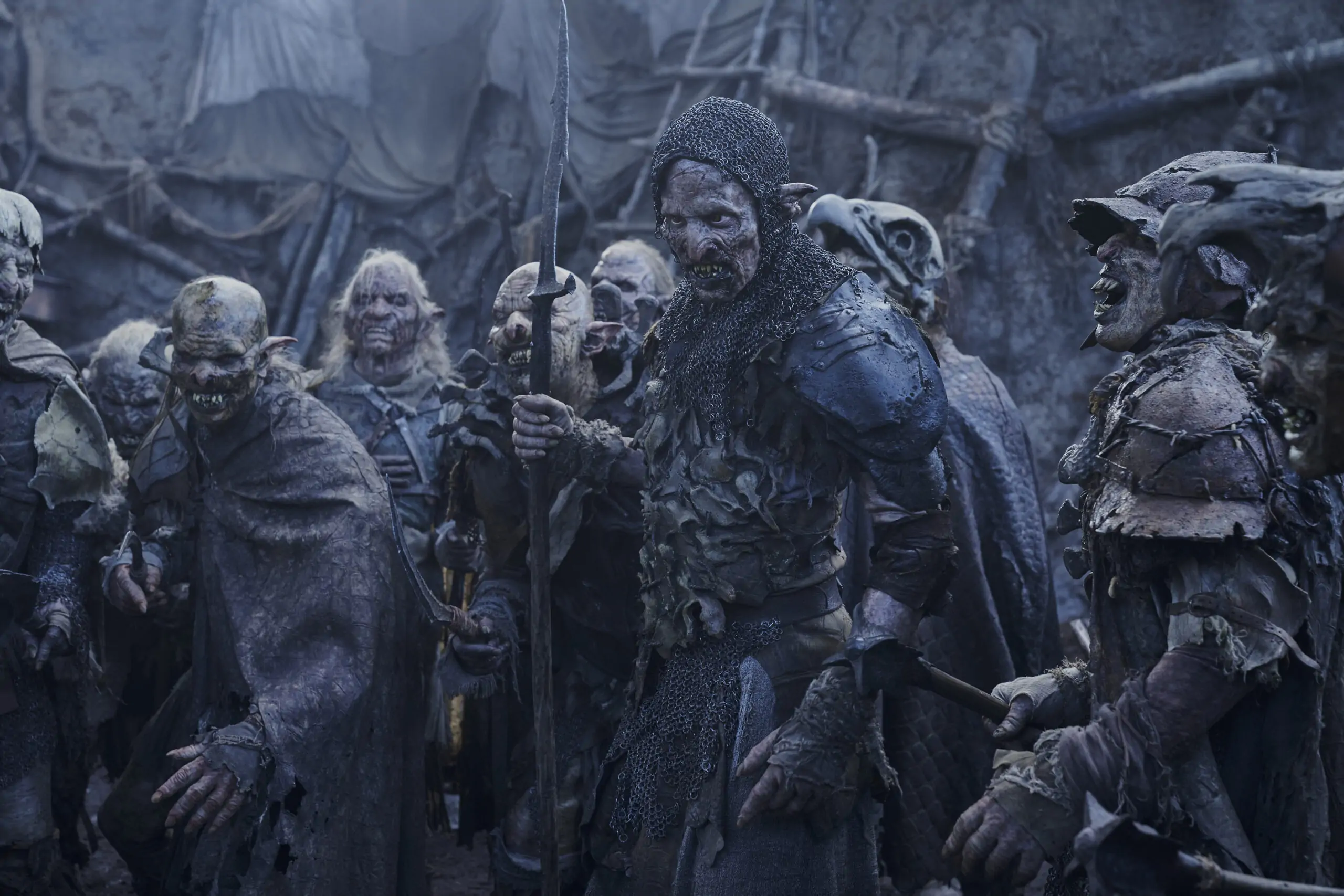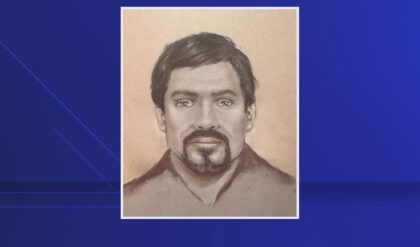
Patton Oswalt speaking at the 2017 San Diego Comic Con International, for “Stranger Things”, at the San Diego Convention Center in San Diego, California. Photo Credit: Gage Skidmore from Peoria, AZ, United States of America, CC BY-SA 2.0 , via Wikimedia Commons
Patton Oswalt, who recently appeared in Ghostbusters: Frozen Empire, shared his thoughts on why he believes The Lord of the Rings: The Rings of Power Season 2 is deeper than Season 1 and specifically pointed to how the show depicts orcs.

Sam Hazeldine as Adar; Morfydd Clark as Galadriel in The Lord of the Rings: The Rings of Power (2024), Prime Video
In a post to X, Oswalt wrote, “What makes season 2 of The Rings of Power deeper than season 1 is seeing the orcs mourn their dead, struggle to find a home in the world and worry about their families.”
He added, “Makes the battle sequences more exciting & heartbreaking. They’re not just a ‘faceless horde.’”
What makes season 2 of @TheRingsofPower deeper than season 1 is seeing the orcs mourn their dead, struggle to find a home in the world and worry about their families. Makes the battle sequences more exciting & heartbreaking. They’re not just a “faceless horde.” pic.twitter.com/ehNXvBhNNb
— Patton Oswalt (@pattonoswalt) October 10, 2024
This does not make the show deeper at all. In fact, it takes away from a prominent theme found in Tolkien’s The Lord of the Rings, that of the struggle between good and evil. And the Orcs are indeed evil as Tolkien noted on several occassions.
In The Silmarillion, he wrote, “All those of the Quendi who came into the hands of Melkor, ere Utumno was broken, were put there in prison, and by slow arts of cruelty were corrupted and enslaved; and thus did Melkor breed the hideous race of the Orcs in envy and mockery of the Elves, of whom they were afterwards the bitterest of foes. For the Orcs had life and multiplied after the manner of the Children of Ilúvatar, and naught that had life of its own, nor the semblance of life, could ever Melkor make since his rebellion in the Ainulindalë before the Beginning: so say the wise. And deep in their dark hearts the Orcs loathed the Master who they served in fear, the maker only of their misery. This it may be was the vilest deed of Melkor and the most hateful to Ilúvatar.”

An orc in The Lord of the Rings: The Rings of Power (2024), Amazon MGM Studios
Furthermore, Tolkien revealed that the term “Orc” actually derives from an Old English term meaning demon. He share din Letter 144 to Naomi Mitchison, ““Orcs (the word is as far as I am concerned actually derived from Old English orc ‘demon’, but only because of its phonetic suitability) are nowhere clearly stated to be of any particular origin. But since they are servants of the Dark Power, and later of Sauron, neither of whom could, or would produce living things, they must be ‘corruptions.’”
He continued, “They are not based on direct experience of mine; but owe, I suppose, a good deal to the goblin tradition (goblin is used as a translation in The Hobbit, where orc only occurs once, I think), especially as it appears in George MacDonald, except for the soft feet which I never believed in. The name has the form orch (pl. yrch) in Sindarin and uruk in the Black Speech.”

Sam Hazeldine as Adar in The Lord of the Rings: The Rings of Power (2024), Amazon MGM Studios
In fact, in Letter 153 to Peter Hastings, Tolkien speculated how Orcs would be naturally bad, ““If they ‘fell’, as the Diabolus Morgoth did, and started making things ‘for himself, to be their Lord’, these would then ‘be’, even if Morgoth broke thesupreme ban against making other ‘rational’ creatures like Elves or Men. They would at least ‘be’ real physical realities in the physical world, however evil they might prove, even ‘mocking’ the Children of God.”
He continued, “They would be Morgoth’s greatest Sins, abuses of his highest privilege, and would be creatures begotten of Sin, and naturally bad. (I nearly wrote ‘irredeemably bad’; but that would be going too far. Because by accepting or tolerating their making – necessary to their actual existence – even Orcs would become part of the World, which is God’s and ultimately good.)”

Robert Strange as Glûg (center, holding spear) in The Lord of the Rings: The Rings of Power (2024), Amazon MGM Studios
Next, Tolkien shared, “But whether they could have ‘souls’ or ‘spirits’ seems a different question; and since in my myth at any rate I do not conceive of the making of souls or spirits, things of an equal order if not an equal power to the Valar, as a possible ‘delegation’, I have represented at least the Orcs as pre-existing real beings on whom the Dark Lord has exerted the fullness of his power in remodelling and corrupting them, not making them.”
“That God would ‘tolerate’ that, seems no worse theology than the toleration of the calculated dehumanizing of Men by tyrants that goes on today. There might be other ‘makings’ all the same which were more like puppets filled (only at a distance) with their maker’s mind and will, or ant-like operating under direction of a queen-centre.”

Sam Hazeldine as “Adar” (left) in The Lord of the Rings: The Rings of Power (2024), Amazon MGM Studios
In fact, Tolkien even discussed why things are corrupted in a draft to Rhona Beare labeled Letter 212. He explained, “I suppose a difference between this Myth and what may be perhaps called Christian mythology is this. In the latter the Fall of Man is subsequent to and a consequence (though not a necessary consequence) of the ‘Fall of the Angels’ : a rebellion of created free-will at a higher level than Man; but it is not clearly held (and in many versions is not held at all) that this affected the ‘World’ in its nature: evil was brought in from outside, by Satan.”
“In this Myth the rebellion of created free-will precedes creation of the World (Eä); and Eä has in it, subcreatively introduced, evil, rebellions, discordant elements of its own nature already when the Let it Be was spoken. The Fall or corruption, therefore, of all things in it and all inhabitants of it, was a possibility if not inevitable. Trees may ‘go bad’ as in the Old Forest; Elves may turn into Orcs, and if this required the special perversive malice of Morgoth, still Elves themselves could do evil deeds. Even the ‘good’ Valar as inhabiting the World could at least err; as the Great Valar did in their dealings with the Elves; or as the lesser of their kind (as the Istari or wizards) could in various ways become self-seeking.”

Robert Strange as Glûg in The Lord of the Rings: The Rings of Power (2024), Amazon MGM Studios
Many lampooned Oswalt for his take noting that orcs are indeed evil. YouTuber Yellowflash wrote, “Orcs are evil. Do you like this because you perhaps identify with them?”
Orcs are evil. Do you like this because you perhaps identify with them?
— Flash (@YellowFlashGuy) October 11, 2024
Novelist, comic book creator, and YouTuber Jon Del Arroz also added, “orcs are evil.”
orcs are evil.
— Jon Del Arroz (@jondelarroz) October 11, 2024
X user Aesthetica also wrote, “How Tolkien described Orcs: Orcs were cruel, sadistic, black-hearted, vicious, and hateful of most things, particularly of those who were orderly and prosperous. They hated themselves, and had an even deeper secret hatred of Melkor, thus resulting as a violent and warlike race in a perpetual state of chaos with itself and others. Wickedness and violence were their nature, and it was not uncommon for them to kill each other in petty quarrels.”
He added, “Interesting that you relate to this.”
pic.twitter.com/qaYt09NngZ
— Aesthetica (@Anc_Aesthetics) October 11, 2024
Artist George Alexopoulos also wrote, “They’re SUPPOSED to be a faceless horde, the living embodiment of evil and destruction, you damn fool.”
They’re SUPPOSED to be a faceless horde, the living embodiment of evil and destruction, you damn fool
— George Alexopoulos (@GPrime85) October 11, 2024
What do you make of Oswalt’s comments?


